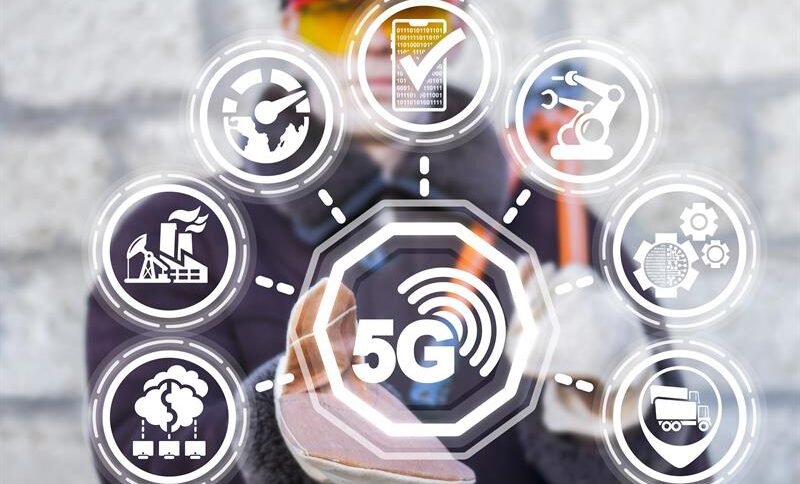Embracing Industry 4.0 and Sustainable Innovation
The next era of industrial production, often referred to as Industry 4.0, is transforming how companies across sectors operate. Fueled by advancements in big data, automation, and the rise of cyber-physical systems, this revolution is reshaping manufacturing processes globally. In the aluminum extrusion industry, these technological advancements are opening up significant opportunities for growth, efficiency, and sustainability.
One of the most exciting aspects of Industry 4.0 is the integration of the Industrial Internet of Things (IIoT), which connects machines, sensors, and devices to optimize manufacturing processes in real time. This connectivity, combined with automation and cutting-edge technologies like 5G networks, enables companies to achieve unprecedented levels of efficiency while minimizing environmental impact—a key focus in the aluminum extrusion industry.
The Role of 5G and Automation in Aluminum Extrusion
Much like how 5G is revolutionizing industries with ultra-low latency and high-performance wireless communications, aluminum extrusion operations are also benefiting from the connectivity and real-time monitoring capabilities that IIoT offers. By implementing smart sensors and interconnected devices throughout the manufacturing process, companies can collect vast amounts of data to optimize production, reduce waste, and increase precision.
For example, automated systems equipped with machine learning algorithms can continuously monitor the extrusion process, adjusting for material flow, energy usage, and product quality without manual intervention. This automation reduces downtime, lowers energy consumption, and enhances overall efficiency, aligning perfectly with the industry’s push for more sustainable manufacturing practices.
Sustainability and Recycling: Core to the Future of Manufacturing
The aluminum industry has long been recognized for its emphasis on recycling and sustainability, with recycled aluminum requiring only 5% of the energy needed to produce new aluminum. Industry 4.0 further enhances these efforts by enabling manufacturers to track material usage and waste production in real-time. This level of insight helps companies optimize the recycling process and reduce overall resource consumption.
As companies integrate 5G-enabled devices into their operations, they can create closed-loop systems where data from each stage of production is analyzed and used to improve the next. This leads to smarter resource management and even more significant reductions in energy usage and waste, aligning with global efforts to combat climate change.
The Factory of the Future
In the context of aluminum extrusion, the “factory of the future” is one where automation, real-time data analytics, and sustainable practices converge. Imagine a facility where every step of the extrusion process is monitored and optimized using interconnected devices. High-performance wireless networks like 5G enable automated machines and robotic systems to work seamlessly, reducing human error, enhancing safety, and improving productivity.
In this factory, motion control systems direct the precise movements of machines, while sensors gather data on temperature, pressure, and material consistency. This information is used to adjust production parameters in real-time, ensuring consistent product quality with minimal waste. Additionally, the use of augmented reality (AR) applications for maintenance and repair, powered by high-speed 5G networks, allows technicians to troubleshoot issues remotely and efficiently.
Overcoming Challenges with Smart Technology
Like many industries, aluminum extrusion faces challenges when it comes to achieving ultra-reliable, low-latency communication in complex production environments. Facilities are often filled with fast-moving metal objects such as conveyor belts and cranes, which can interfere with wireless signals. However, the advent of spatial diversity and advanced networking technologies helps overcome these limitations, ensuring stable and reliable connections across the factory floor.
Through the Industrial Internet of Things, aluminum extrusion facilities can not only overcome these challenges but also enhance their operational resilience. This results in fewer interruptions, higher productivity, and a more sustainable manufacturing process overall.
A Commitment to Sustainability and Innovation
The aluminum extrusion industry is uniquely positioned to lead the way in combining cutting-edge technology with sustainable practices. By embracing the possibilities of Industry 4.0, companies can significantly improve their production efficiency, reduce their carbon footprint, and ensure that their operations are in line with global environmental standards.
As we look to the future, the continued adoption of automated systems, IIoT, and 5G will undoubtedly play a crucial role in shaping the next era of manufacturing. Aluminum extrusion companies that leverage these technologies will not only reduce costs and improve product quality but also contribute to a more sustainable and environmentally friendly industry.


